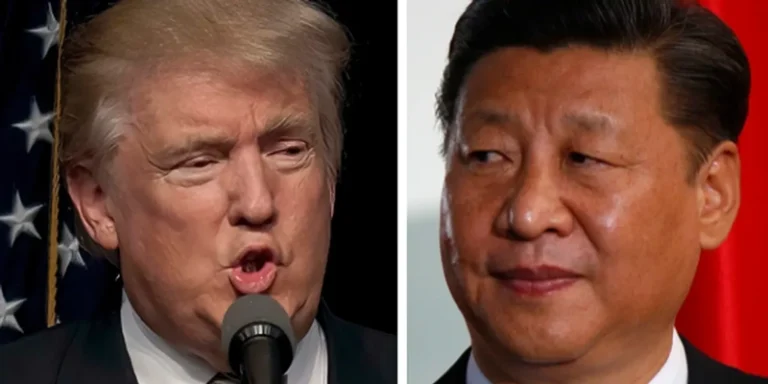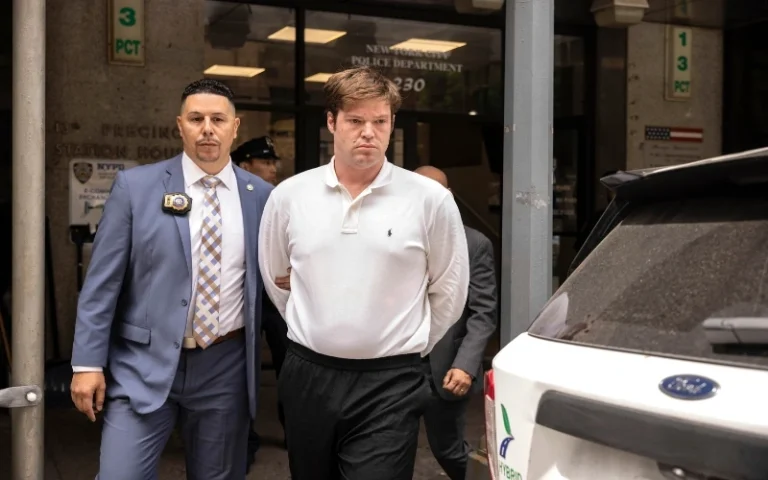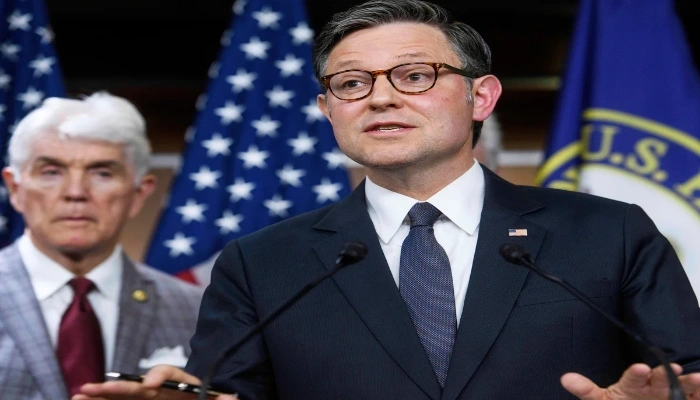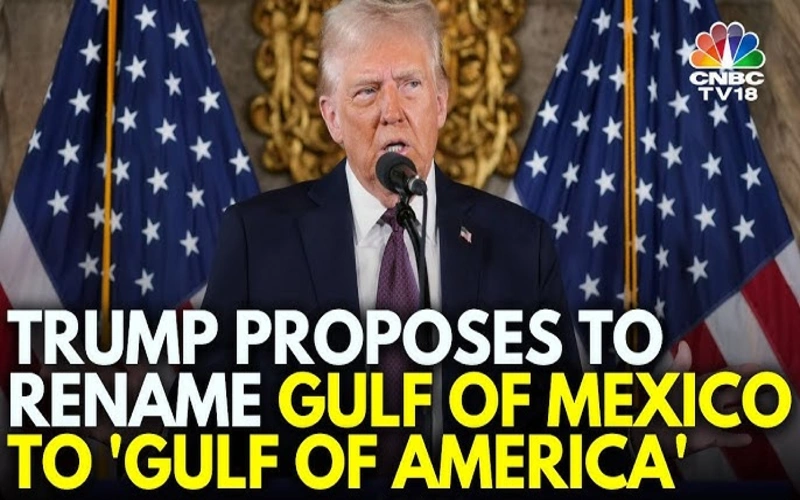
President Donald Trump has made it clear during his current Gulf Fascination tour that he sees aspects of Middle Eastern leadership he wishes to emulate in the United States.
During his visit to Saudi Arabia, Trump received a lavish welcome from Crown Prince Mohammed bin Salman, who is known for both his strict rule and efforts to modernize the kingdom. The royal treatment Trump received appeared to surpass even the praise he received from top aides in Washington.
His tour continues in Qatar on Wednesday, where more grand displays are expected. Trump is traveling aboard his older model Air Force One aircraft, despite reports that his Gulf hosts have offered to give him a newer 747-8 jet.
In a keynote speech delivered in Riyadh, Trump declared, “We’ve launched the Golden Age of America,” adding that the Middle East is poised to enter a similar era alongside the United States.
The trip, which also includes a visit to the United Arab Emirates, offers a glimpse into the direction Trump may take if elected to a second term in office.
Trump’s Gulf Visit Blends Business, Geopolitics, and Authoritarian Affinities
President Donald Trump’s current trip through the Gulf Fascination is underlining a broader strategy where “America First” is not just about national pride, but also about aggressive economic and foreign policy moves. By actively seeking hundreds of billions of dollars in foreign investment, Trump is promoting U.S. business interests abroad often in ways that align with his personal and political circles.
While in Saudi Arabia, Trump appeared closely aligned with Crown Prince Mohammed bin Salman (MBS), reinforcing his comfort with wealthy authoritarian rulers who often blur the lines between state affairs and personal gain. There has been little public concern in the region about the president’s visit coinciding with business activities involving his sons in countries on his itinerary.
At the same time, Trump’s focus on the Gulf Fascination is also drawing attention to the region’s growing influence in global affairs. Wealth from oil-rich nations like Saudi Arabia, Qatar, and the United Arab Emirates is helping shift power from traditional Western strongholds to emerging Eastern centers.
This shift will be especially visible in Qatar, where Trump is set to arrive next. Despite its small size smaller than Connecticut and home to about 2.5 million people Qatar plays a central role in international diplomacy. It has become a key mediator in global conflicts, maintaining dialogue with a wide range of actors including the U.S., Iran, Russia, Israel, Hamas, Ukraine, Lebanon, the Taliban, and rebel groups from Congo. Often acting as a miniature United Nations, Qatar is involved in efforts to end wars, negotiate peace, and secure hostage releases across the globe.
Trump Praises Gulf Transformations, Seeks $1 Trillion Investment
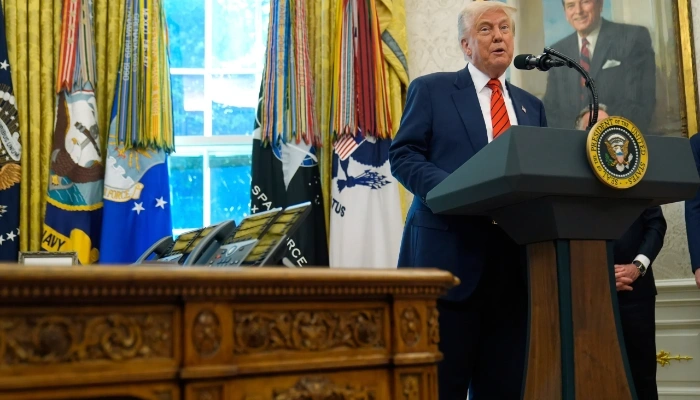
During his Gulf tour, former President Donald Trump praised the rapid development across the region and progress he says he wishes to replicate in the U.S. While aiming to secure $1 trillion in investment to support his tariff-driven economic agenda, Trump expressed admiration for the Gulf’s ambitious projects, made possible without the regulatory hurdles found in America.
Backed by massive sovereign wealth funds, Gulf nations are investing heavily in modern infrastructure, sports, and the arts to prepare for a post-oil future. Qatar’s hosting of the 2022 FIFA World Cup and Saudi Arabia’s creation of new sports leagues, some hosted at Trump properties are part of broader efforts often criticized as attempts to distract from human rights issues. Trump also gave a nod to FIFA President Gianni Infantino, a known supporter, during his remarks.
Trump Lauds Gulf Development, Signals Shift Toward Realpolitik
During his ongoing tour of the Gulf, former President Donald Trump expressed open admiration for the region’s rapid transformation and strong-handed leadership, contrasting it with what he sees as bureaucratic stagnation in the West.
In Riyadh, Trump praised the Gulf’s modern cities and soaring skyscrapers, calling their development “amazing genius.” He commended leaders in Dubai, Abu Dhabi, Doha, and beyond for creating a future driven by trade and technology rather than conflict and terrorism.
Trump’s glowing remarks revealed more than just praise; they hinted at a political vision for the U.S. inspired by the Gulf’s centralized power. Without legal constraints or media scrutiny, Trump suggested, such nations can act decisively and spend freely, unlike in the U.S. “I like him too much,” Trump said of Saudi Crown Prince Mohammed bin Salman, despite the crown prince’s alleged role in the 2018 killing of journalist Jamal Khashoggi. “That’s why we give so much.”
Rejecting what he called moralizing foreign policy, Trump said, “It is God’s job to sit in judgment, my job is to defend America,” signaling a shift to a more transactional, interest-based approach to global affairs.
On Tuesday, Trump claimed $600 billion in new investments from the Gulf region, though such figures often include past deals and unconfirmed future plans. He also announced the lifting of U.S. sanctions on Syria, following the fall of the Assad regime, a move likely to stir tensions with Israel.
Trump’s next stop is Qatar, a tiny but strategically critical partner. Home to the massive Al Udeid Air Base, Qatar has positioned itself as a key U.S. ally and diplomatic broker, often mediating global disputes far beyond its borders. The White House continues to frame the tour as an economic mission, but the growing overlap between security and business is becoming more evident with each stop.
Qatar’s Expanding Diplomatic Role Draws Praise and Scrutiny

Qatar’s growing influence on the global stage is becoming hard to ignore, as the small Gulf nation plays an outsized role in international diplomacy and conflict mediation.
“We are a small country, but we have a long outreach,” Qatari Foreign Minister Mohammed bin Abdulrahman Al Thani told The Washington Post this week, highlighting the country’s ability to engage quickly and flexibly across regions.
Qatar has been active in some of the world’s most complex conflicts from helping mediate ceasefires in Gaza and negotiating hostage releases, to assisting the U.S. evacuation from Afghanistan. Just this week, Doha joined Egypt in talks with Hamas to free the last living American hostage in Gaza, Edan Alexander.
The nation also maintained ties with Russia after its invasion of Ukraine, using those channels to help release Ukrainian children. It has brokered deals between the U.S. and Venezuela and is currently hosting peace talks aimed at ending violence in the Democratic Republic of Congo.
However, Qatar’s willingness to engage with groups like the Taliban, Hamas, and the Muslim Brotherhood has raised concerns. While its open-door policy has often aligned with U.S. foreign policy interests, it has also drawn criticism in Washington, especially over its state-backed media outlet Al Jazeera and human rights issues.
Tensions resurfaced recently when Qatar offered former President Trump a new 747 aircraft, intended as a temporary upgrade to Air Force One. Critics viewed the gesture as an attempt to curry favor, raising ethical and constitutional concerns. Intelligence agencies would need to thoroughly inspect the aircraft to rule out any security risks.
The offer also drew attention to Qatar’s internal challenges. The U.S. State Department has cited political repression, limits on free speech, and flaws in the legal system. Republican Senator Rand Paul criticized the potential influence such a gift could have on U.S. policy, saying, “I wouldn’t take it. That’s just me. I don’t think it’s a good idea.”
Despite the controversy, Qatar’s diplomatic efforts reflect a broader trend: Gulf nations increasingly stepping in as key intermediaries where Western powers cannot. As regional influence grows, so too does the scrutiny.
